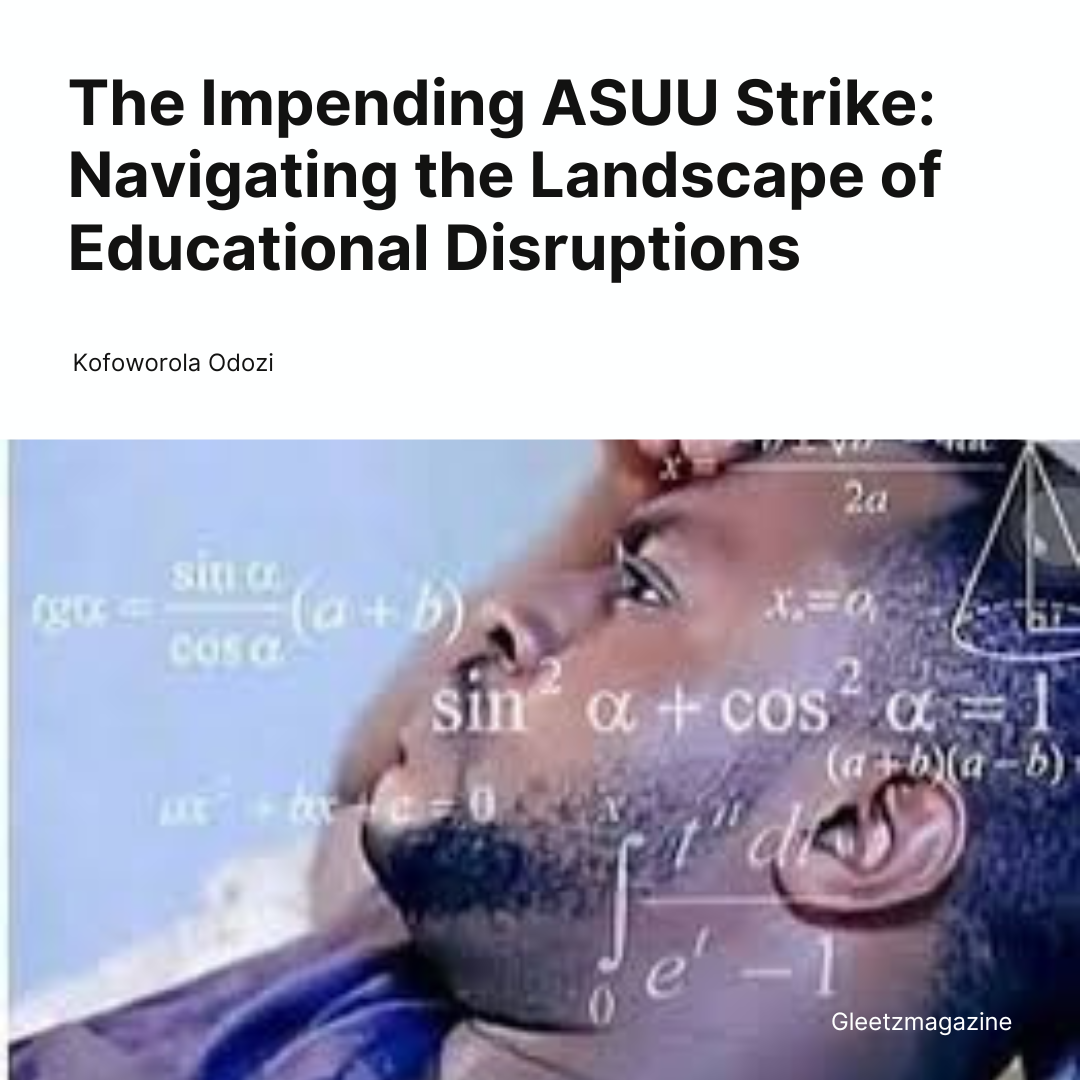Former US President Donald Trump Shot But Escapes Assassination Attempt
As the specter of another nationwide strike looms over the Nigerian educational landscape, with the Academic Staff Union of Universities (ASUU) gearing up for action, the implications for students, educators, and the nation’s educational system are both profound and concerning. This article delves into the factors leading to the impending ASUU strike, the historical backdrop of such labor actions, and the potential consequences for the already fragile state of higher education in Nigeria.

Background:
ASUU, a union representing academic staff in Nigerian universities, has a history of engaging in strikes as a means to draw attention to the myriad challenges facing the education sector. These challenges range from inadequate funding and infrastructure to issues of remuneration and autonomy. The impending strike is rooted in longstanding grievances that, in the eyes of ASUU, have not been adequately addressed by the government.
Key Issues Leading to the Strike:
Funding and Infrastructure: One of the perennial issues raised by ASUU is the inadequate funding of universities, leading to a lack of essential infrastructure, outdated facilities, and a compromised learning environment.
Remuneration: ASUU has consistently advocated for improved salaries and benefits for its members, arguing that competitive remuneration is crucial for attracting and retaining top-quality educators.
Autonomy: The question of university autonomy has been a recurring theme in ASUU’s demands. The union contends that greater autonomy is essential for universities to function effectively and provide quality education.
Implementation of Previous Agreements: ASUU has expressed frustration over what it perceives as a lack of commitment by the government to implement agreements reached in the past, contributing to a cycle of recurrent strikes.
Historical Context:
Nigeria has a history of periodic strikes in the education sector, and ASUU has been a prominent player in this cycle. The union sees strikes as a necessary tool to press its demands, given the perceived failure of dialogue and negotiation to yield tangible results.
Potential Consequences:
Disruption of Academic Calendar: One of the immediate consequences of a strike is the disruption of the academic calendar, affecting students’ progress and potentially delaying graduation timelines.
Brain Drain: Persistent challenges within the education sector may contribute to a ‘brain drain,’ with talented educators seeking opportunities abroad, exacerbating the shortage of skilled personnel.
Impact on National Development: A compromised higher education system can have long-term ramifications for national development, as the quality of education directly correlates with a country’s capacity for innovation and growth.
Conclusion:
The impending ASUU strike raises critical questions about the state of higher education in Nigeria and the recurring challenges that have yet to be fully addressed. It underscores the urgent need for a comprehensive and sustainable solution that prioritizes the welfare of educators, the development of robust infrastructure, and a commitment to the autonomy and excellence of the nation’s universities. The outcome of this impending strike will likely shape the trajectory of higher education in Nigeria for years to come.
READ: Asuu Strike: What to do with the extra three months https://www.instagram.com/gleetz_magazine/









